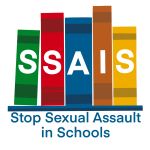 by Christine Garner, with input from Bill Howe and SSAIS.
by Christine Garner, with input from Bill Howe and SSAIS.
This FAQ is about Title IX and private K-12 schools. It is not intended as definitive legal advice. We recommend that you contact an attorney to review your specific situation. The Department of Education’s Office for Civil Rights (OCR) continues to change its guidance. This information is based upon guidance provided prior to March 10, 2018.
Is a private K-12 school required to comply with Title IX?
Title IX states that “No person in the United States shall, on the basis of sex, be excluded from participation in, be denied the benefits of, or be subjected to discrimination under any education program or activity receiving federal financial assistance.” If a private school receives any federal financial assistance then it must comply with Title IX, unless the school has a legitimate religious exemption (see below).
The courts have ruled that even if one department of a school receives federal financial assistance, the entire school must abide by Title IX. If a private school is part of an entity with more than one school, then all schools within the entity must adhere to Title IX, even if only one of the entity’s schools receives federal financial assistance.
Does a private religious school have to comply with Title IX?
If a private religious school accepts federal financial assistance, then it is required to comply with Title IX. A religious school can claim an exemption from Title IX requirements that it believes would be inconsistent with its religious tenets. Religious schools may apply to the Department of Education for exemptions to Title IX requirements, but a school is not required to file a written claim for an exemption to be valid. The school can raise the religious exemption in response to a Title IX complaint.
The most common religious exemptions apply to sports, pregnant students, or LGTBQ rights. It is difficult to envision a valid religious tenet that would exempt a school from having to address sexual harassment or sexual assault. If a religious school claims an exemption, you could still file a complaint, and OCR will decide if the exemption is valid.
What qualifies as federal financial assistance?
The Department of Justice (DoJ) defines federal financial assistance as “the award or grant of money.” The DoJ definition continues:
However, federal financial assistance may also be in nonmonetary form… [F]ederal financial assistance may include the use or rent of federal land or property at below market value, federal training, a loan of federal personnel, subsidies, and other arrangements with the intention of providing assistance. Federal financial assistance does not encompass contracts of guarantee or insurance by the federal government. It is also important to remember that not only must an entity receive federal financial assistance to be subject to Title IX, but the entity also must receive federal assistance at the time of the alleged discriminatory act(s) except for assistance provided in the form of real or personal property. In this situation, the recipient is subject to Title IX for as long as it uses the property.
Private K-12 schools usually receive financial assistance from the Department of Education, the Department of Agriculture, or the Department of Health and Human Services. Private schools might also receive financial assistance from other federal agencies.
If a student or teacher at a private school receives Title I or special education services from a public school, does that mean the private school is a recipient of federal financial assistance?
Title I of the Elementary and Secondary Education Act (ESEA) and the Individuals with Disabilities Education Act (IDEA) require public school districts to provide eligible students with special education resources and also to provide “equitable services” to eligible children in private schools. If a private school student or teacher receives “equitable services” from a public school, that does not mean that the private school is a recipient of federal financial assistance. Department of Education policy does not consider services provided to private school students or teachers under ESEA Title I or IDEA as federal funds given to the school.
How do you know whether your private school receives federal financial assistance?
First, ask the private school administration if they receive federal financial assistance. The school should know because they are required to sign an Assurance of Compliance prior to receiving the funds. The assurance of compliance states only that the school “assures” the federal agency that the school complies with Title IX and the other federal civil rights laws. The signed assurance of compliance does not mean the federal agency has audited to see if the school is truly in compliance.
If the school refuses to answer or you do not trust their answer, you can search USAspending.gov (see instructions below) or the Federal Audit Clearinghouse. These databases show the federal financial award amount and the agency that provided the money. Even if the school does not appear in one of these databases, it still might receive federal financial assistance.
If you cannot verify whether your private school receives federal financial assistance, you can still file a Title IX complaint with OCR, and they will determine if the school receives funds from the Department of Education. It’s best to consult with an attorney first to determine the best course of action because you can lose valuable time waiting for a determination from OCR.
If my private school does receive federal financial assistance, how do I a file complaint under Title IX?
If you are not able to resolve your complaint with the private school, you can file a lawsuit or file a complaint through the civil rights department of the federal agency that provided the school with financial assistance. The three most common sources of federal financial assistance to private K-12 schools are the Department of Education, the Department of Agriculture, and Department of Health and Human Services.
Here are the links to file complaints:
- Department of Education: online through the Office for Civil Rights.
- Department of Agriculture online through the Office of the Assistant Secretary for Civil Rights.
- Department of Health and Human Services: can be processed online through the HHS Office for Civil Rights.
- Other Federal Agencies: The Department of Justice created a web page with links to all the civil rights offices of federal agencies. On the same webpage, the DOJ also provides links for each department’s process for filing a civil rights complaint.
OCR sets the standard for review of a Title IX complaint, even if another federal agency is processing that complaint. If a private school receives funds from more than one federal agency, you only need file a complaint with one agency. It’s preferable to file a complaint through the Department of Education if your school receives funds from the Department of Education.
When must I file my Title IX complaint?
You must file a Title IX complaint within 180 days of the latest occurrence of the discrimination. If you filed a complaint through your school’s grievance process and you feel your Title IX rights were violated, you can file a complaint with OCR within 60 days after the last act in the school’s grievance process. OCR sometimes grants a waiver of the 180-day filing period, but it’s best to submit your complaint within that time frame. Because discrimination can be ongoing, discuss your filing deadline with an attorney as soon as you discover the discrimination.
What if my private school isn’t required to comply with Title IX?
You do not need to rely only on Title IX to prove sexual harassment and sexual assault are wrong. Even if your private school is not required to comply with Title IX, you can still demand that it address these issues and live up to Title IX standards. If a student is a victim of sexual assault at a private school, the action is still wrong and the school should respond to protect and help the victim. Depending on the facts, a private school might be liable for breach of contract, negligent supervision, or some other legal theory that would be best discussed with an attorney.
As noted in the Assurance of Compliance, schools must also comply with other civil rights laws and an incident could violate more than one law. Title VI of the Civil Rights Act of 1964 prohibits discrimination based on race, color, or national origin. Discrimination based upon disability is prohibited by Section 504 of the Rehabilitation Act of 1973 and Title II of the Americans with Disabilities Act of 1990. Age discrimination is prohibited by the Age Discrimination Act of 1975.
Most states have their own anti-bullying laws. These statutes define bullying in different ways. Check with an attorney about whether a private school must comply with anti-bullying laws in your state.
In conclusion, if a student has been a victim of sexual harassment, do not give up. You have the right to demand protection and help from your private school.
Instructions on how to conduct a search on the USA Spending website:
- Browse to USAspending.gov advanced search webpage.
- On the left side, in the Filters box, under Time Period, select All Fiscal Years.
- In the Filters box, click Award Type, and select all of the categories (Contracts, Grants, Direct Payments, Loans, and Other).
- In the Filters box, click Recipient, and in the Recipient Name search box, enter the name of the school or portion of the name, and then click the search icon (magnifying glass).
- Scroll to the top or to the bottom of the Filters box, and then click Submit Search.
